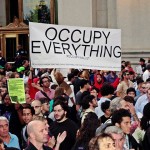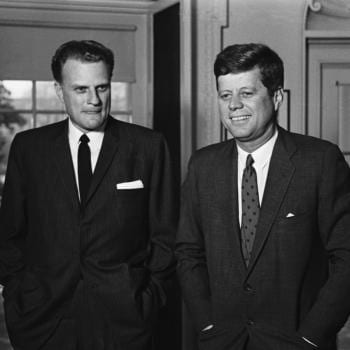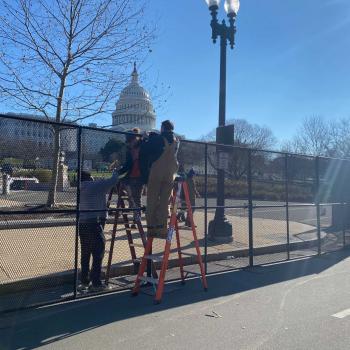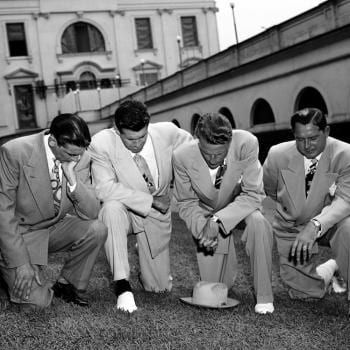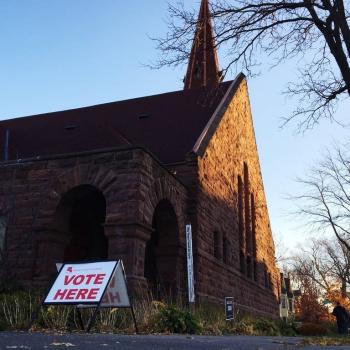Yes, this has lodged in my craw but I continue to be fascinated and a tad annoyed by the never Trump phenomenon. The most recent iteration comes from historians who teach and write in the United States.
When you combine the GOP presidential nominee’s success with what’s happening in Turkey, you (okay I) wonder if historians working in the U.S. might apply their historical perspective to differences between us and the Turks. I understand that some liken the Republican candidate to all manner of totalitarianism. But I cannot imagine Trump doing to American higher education what President Recep Tayyip Erdogan is doing to Turkish Universities.
Turkey’s Higher Education Council reportedly demanded the resignation of 1,577 university deans on Tuesday as the widespread purges of state institutions begun after last week’s failed coup extended into the education sector.
In addition, more than 15,000 education ministry officials were suspended and 21,000 schoolteachers had their licenses revoked.
The New York Times reported in its coverage of the education purges that an additional 35,000 members of the military, security forces and judiciary had been purged or detained as of Tuesday night in an effort to root out perceived loyalists of Fethullah Gülen, a Muslim cleric whom the government accuses of organizing Friday’s attempted coup. Gülen has denied any involvement.
In addition to the purges the government announced a blanket travel ban against all academics on Wednesday, according to The Washington Post, which cited as its source the state-run broadcaster TRT.
Why is this an unimaginable outcome in the United States? (Spoiler alert: it’s fantasy.) Because the history of the United States has political institutions and cultural expectations that disallow such authoritarianism. If Trump represents discontent with the United States’ political mainstream and media and university elites, now more than ever the people who fear what Trump will do to American institutions need to own their faith in the nation’s political and cultural institutions. If they can’t, then they may share more in common with the Trumpists than they realize.
Notice too that Turkish historians joined other academics in signing a petition that protested what Erdogan’s government was up to:
“We ask the state to put an end to violence inflicted against citizens right now, we as academics and researchers of this country declare that we won’t be a party to this crime and that promise that we will sustain our stance in the presence of political parties, parliament and international public”.
Over 1,400 academics and researchers from Turkey and abroad have signed the statement titled “We will not be a party to this crime”.
Academics for Peace which has initiated the campaign has shared their next steps and signees in the press statement held simultaneously in İstanbul and Ankara.
1,128 academics from 89 universities in Turkey, and over 355 academics and researchers from abroad including figures such as Noam Chomsky, Judith Butler, Etienne Balibar and David Harvey have signed a text calling on state of Turkey to end state violence and prepare negotiation conditions.
So why are historians in the United States so upset by Trump (and why are evangelical historians joining them?)?
Today, we are faced with a moral test. As historians, we recognize both the ominous precedents for Donald J. Trump’s candidacy and the exceptional challenge it poses to civil society. Historians of different specialties, eras and regions understand the enduring appeal of demagogues, the promise and peril of populism, and the political uses of bigotry and scapegoating. Historians understand the impact these phenomena have upon society’s most vulnerable and upon a nation’s conscience. The lessons of history compel us to speak out against a movement rooted in fear and authoritarianism. The lessons of history compel us to speak out against Trump.
Wouldn’t historical perspective invite a judgment that Turkey and United States have different politics, academic institutions, understandings of freedom (and its academic aspects), relations between government and universities? Wouldn’t such a comparison lead to a measure of reassurance that the United States has faced threats in the past but the federal government, just like Timex, keeps on ticking?
Unfortunately, it’s often the people not licensed to do history who have the sort of perspective that history is supposed to yield:
Look, there’s a very real case to be made that Trump is a danger to the Republic. He genuinely doesn’t care about political norms, international law, or even the constitution. He’s erratic and impulsive and narcissistic. He might very well issue illegal orders to violate international law — like the last Republican President did, and like the last Republican Presidential nominee advocated doing, only worse. There’s a reason I’m rooting for Hillary Clinton to utterly crush Donald Trump. I think he’d be a truly ruinous chief executive.
But there is essentially zero risk that any faction of the U.S. military will take it into its head to oust Trump from the presidency. Kirchick doesn’t even bother to outline a plausible scenario for such an eventuality. He jumps straight from “Trump is insufficiently opposed to Putin’s Ukrainian stooges” to “Trump will issue orders that will put American security in jeopardy” to “the U.S. military will have no choice but to step in to stop him, even if it means a coup.”
Kirchick isn’t really warning that this might happen. He’s fantasizing. He’s implying that, in his mind, a coup would be justified to eliminate the threat of Donald Trump.
The contrast with the overwhelming resistance by Turkey’s opposition parties to the coup against Erdogan speaks volumes.

